7 Tips for Aging Healthy at Home
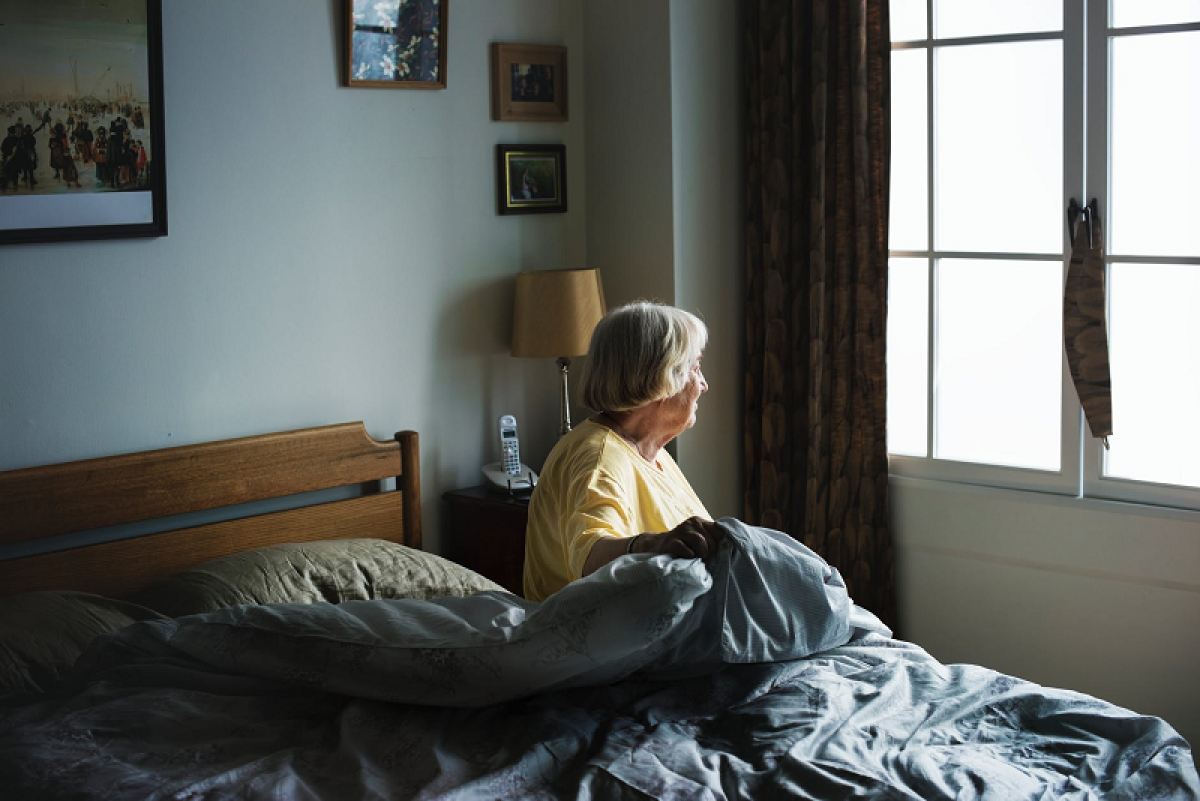
The same mental, physical and emotional wellness that makes up a healthy life is pretty much the same that we all need as we age. While the youthful body is full of vigor and great resilience, it is important to mind your health if you hope to maintain good health into your golden years.
Healthy aging is all about learning to maintain the balance between your mental, physical and emotional health as you grow older, and understand how each of these plays into each other.
A good thing to remember is that no matter your age, it is never too late to begin affecting positive changes while at home that will begin to impact your health and well-being positively.
Practical Steps for Good Health and Aging Well
Here are some practical things you can do when you are home to begin boosting your health and ensure you are aging well henceforth.
1. Active Lifestyle
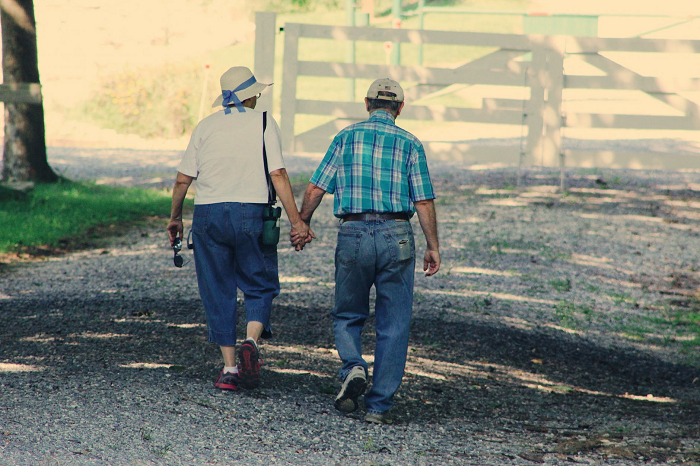
Getting regular exercise is an essential part of good health at any time of your life and by the time you begin to age, it should be an important part of your regular routine.
As we age, exercise helps to maintain the physical body in good shape. Muscles, bones, connective tissues, circulatory functions, and respiratory functions are all engaged and improved directly through physical exercise.
Consequently, mental health and emotional health are also boosted by good exercise. Choosing something you love to do can even help you shove off depression.
Before you begin any routine, be sure to discuss your plans for better exercise with your doctor. It is a good idea to get a professional recommendation when choosing a routine to avoid injuries and ensure good results without strain and too much difficulty.
2. Eating Healthily

In addition to getting the right amount of exercise for your body, it is important to consider the foods you are eating. A healthy weight supported by a healthy diet are two very important aspects of maintaining a long life.
Some important things to keep in mind are choosing more veggies and natural unprocessed food. Some things to minimize in the diet are red meats and saturated fats. Trade these out with natural healthy oils.
The older we get, the more eating and properly maintaining a diet can become more difficult. At this time the metabolism is slowing down and digestion needs to be addressed more closely in the diet.
Unless we actually like cooking, and some people just don’t, preparing appetizing meals can also be a very difficult task. It is important to think of ways to make your food selection and preparation process fun, entertaining and nourishing.
3. Stay Socially Active
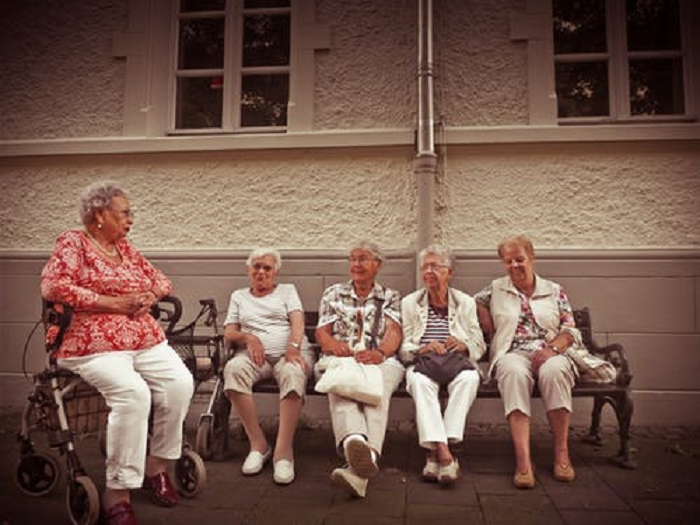
Even with a strong mind and body, your emotional health must be addressed so it doesn’t pull the other two strengths down.
If you are in a situation where you live alone, you must be aware of the risks of loneliness. For those who have recently lost a partner, it is very important to have regular social interactions and try to have a conversation every day with at least one person.
It is not that difficult to remain socially active. All it requires is taking the time to cultivate the relationships you can, long-distance phone calls and regular interactions with people across the globe are easy with modern communications systems.
So, take the time to reach out and make a connection.
4. Get Quality Sleep & Rest

Sleep is not just important to your health, but also to the quality of your life. As a matter of fact, the human body will survive without food, for longer than it will last without sleep.
As we get older, the chemical processes that allow us to enter the sleep cycle become tired and less efficient. Seniors will need a good 7 to 9 hours of sleep each day.
Without proper rest habits, it will be impossible to maintain the cognitive edge we need to ward off depression and irritability. Furthermore, good sleep maintains the physical and immune functions that we need to keep good health.
Taking the time for regular exercise is a good way to improve sleep habits at night. Try to get to proper. Try to get to bed before 11 pm and make sure your sleeping conditions are cool and dark for optimal sleep quality.
Furthermore, try to avoid drinking stimulating drinks or spicy foods before you sleep. The use of mobile devices and screens can also help to cut down on a source of a night time.
5. Stress Reduction

Stress is a major factor that can contribute to a loss of health and well-being. Taking the time to learn how to manage stress and avoid it altogether is an important part of living and aging healthy through your golden years.
Stressful situations happen all the time, but it is our decision about how we choose to respond to the stressors in our lives. Some things that can improve resilience to stress and help to balance out these stress factors include nutritious foods and proper rest.
Moreover, the love and support of family members or professional counselors can also be effective in combating stressful conditions.
6. Practice Prevention & Safety
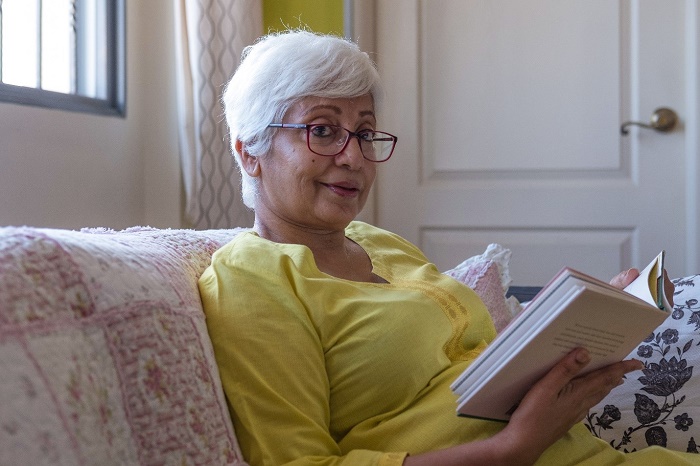
A fence at the top of the stairs is better than an Emergency Medical Team at the bottom.
Other important ways of making your aging a healthy experience include looking for ways to make your home a safer living environment. Reducing the risk of falling accidents can be done by investing in carpeting and clearing low-lying obstacles from your path. The home can be modified for improved stability and prevention of falling accidents.
Additional components like an alarm system or medical safety device can allow you to contact emergency services in the event of an emergency or accident.
Furthermore, there are home care experts who can be called in just to examine a residence and determine if changes or modifications should be made for safety purposes. Sometimes you need an expert eye to provide needed advice and reassurances.
7. Emotional Health
Everyone – young and old – is going to feel upset, depressed or melancholy from time to time, but emotional health is about being able to bounce right back to being cheerful and optimistic.
Maintaining this emotional intelligence is a very important aspect of a healthy aging process. As you age, it would be important to take up activities practices and lifestyle changes that support emotional and physical wellbeing.
There is a great wealth of support that can be found in focusing on spiritual practices and the profound benefits of religious teachings and traditions supply for longevity.
Other good sources of emotional balance and support include the time spent with relatives, friends and even pets. Sharing and expressing love is a very important part of emotional well-being.
Pleasurable routines can also be very stabilizing so consider some hobbies and arts that you feel passionate about and see if this lifts your spirits and makes you feel motivated.
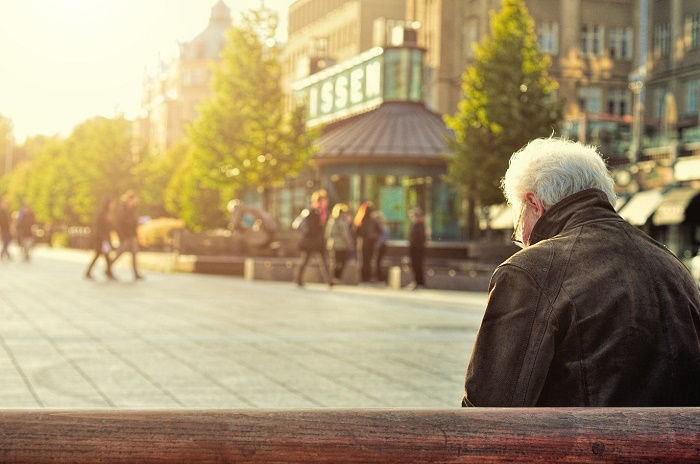
Bottom Line: Maintain Good Health Routines & Balance in Old Age
As you can tell from the information listed above, proper aging is quite the balancing act between emotional, physical and mental health. All of these form the supports from which a life of good health and well-being can be established.
As you get older every action, bite and thought you enjoy throughout the day must be appraised by its contribution to your overall health.
In addition to the healthy advice mentioned above, don’t neglect the importance of getting a regular checkup and some professional advice on your conditions. A little professional insight can make all the difference in catching conditions early enough to do something about it.

 Angela Vandyke has admired people who give primary care to the oldies since her childhood days. Because of her passion towards elders, she pursued Physical Therapy in college, and specializes in rehabilitation for the elderly. In her free time, Angela writes in her journal the different moments she's had with the elders she loves and cares for.
Angela Vandyke has admired people who give primary care to the oldies since her childhood days. Because of her passion towards elders, she pursued Physical Therapy in college, and specializes in rehabilitation for the elderly. In her free time, Angela writes in her journal the different moments she's had with the elders she loves and cares for. 













![Start a Career in Gaming Industry: Tips & Best Employment Opportunities [node:title]](/sites/default/files/styles/video_thumbnail_bottom/public/gamer-playing-first-person-shooter-tournament-using-rgb-keyboard-headphone-3933.jpg?itok=PbcL-V2p)




